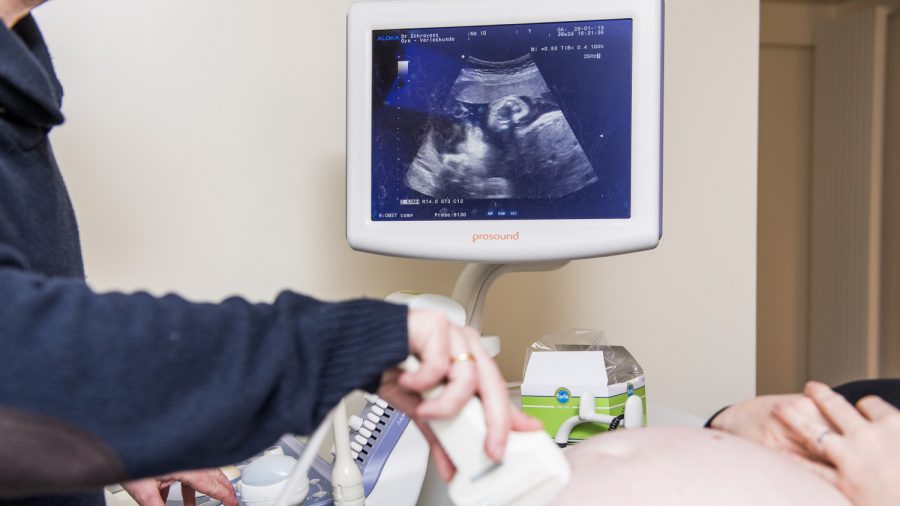A Georgia Senate committee has passed a bill that would block abortions after a fetal heartbeat is detected.
House Bill 481 was passed by a Georgia House panel on March 6 and by the full Georgia House soon after.
The bill was cleared Monday by the Senate Science and Technology Committee on a 3-2 vote, with Republicans voting in favor and Democrats voting against, reported the Atlanta Journal-Constitution.
The panel also considered three amendments from state Sen. Valencia Seay, one of the Democrats, all of which would have dramatically altered the legislation. All the amendments were defeated 3-2.
“Today, we took another step to ensure that life is valued and protected in Georgia. I thank the Senate Science and Technology Committee for their work and look forward to HB 481 receiving consideration by the full Senate.” – @GovKemp #gapol
— Governor Brian P. Kemp (@GovKemp) March 18, 2019
Also known as Living Infants Fairness and Equality (LIFE) Act, the legislation would ban abortions once a heartbeat was detected in the unborn baby.
The bill says “Modern medical science … demonstrates that early infants in the womb are a class of living, distinct human beings that, among other individual human traits, have their own distinct blood types, organ systems, and unique fingerprints,” among other traits.
“Unborn children shall be worthy of recognition as natural persons under the laws of this State,” the legislation reads. Under the U.S. Constitution and Georgia law, no person “shall be deprived of life, liberty, or property except by due process of law” and “no person shall be denied the equal protection of the laws,” the House bill stated.
Current Georgia law allows abortions up to 20 weeks; if passed, the so-called heartbeat bill would ban abortions when a fetal heartbeat was detected, which typically happens in a women’s sixth week of pregnancy. Exceptions for rape or incest are included. If not getting an abortion would pose substantial and irreversible physical harm to the prospective mother, an abortion is allowed.
The Anti-abortion ‘heartbeat bill’ cleared the Georgia Senate early Monday, with protesters erupting in chants as the bill’s sponsor and those who voted in favor left the room: https://t.co/m60eWIJHzA pic.twitter.com/Svt5NAVDR2
— AJC (@ajc) March 18, 2019
After Monday’s vote, the legislation will be considered for a vote by the full state Senate as soon as this week but will require approval by the House again because it was altered to allow expectant mothers to get money from fathers of the unborn children to pay for costs associated with pregnancy.
The vote came after the panel heard four hours of testimony during a hearing last week.
“We recognize legally and scientifically a person’s alive if they have a beating heart,” said state Rep. Ed Setzler, a Republican and the bill’s primary sponsor, during the hearing, reported Fox 5. “Why would we treat it differently in the womb?”
Jody Duffy, director of Post Abortion Treatment and Healing, a Christian nonprofit, testified in favor of the bill and spoke about her own abortion after being raped, reported The Associated Press.
“The pain and the grief was so profound that all I could do was think about that horrific day on that table and that abortion,” Duffy said. “The trauma of that rape was just expounded by the trauma of that abortion.”
State Rep. @Ed_Setzler arriving at the Capitol this morning, passing by the handmaids that have been protesting his #hb481 daily for more than a week. #gapol ???? by the @ajc‘s Bob Andres pic.twitter.com/nlmFv6Wu4f
— Maya T. Prabhu (@MayaTPrabhu) March 18, 2019
John Walraven, a lobbyist representing Georgia Reproductive Endocrinologists, contended that it wasn’t possible that a “human heartbeat” could be detected at six weeks.
“Six weeks from fertilization, a human heart has not formed. What has not formed, cannot beat,” Walraven said.
Gov. Brian Kemp, a Republican, has said he supports the proposed legislation.
In a poll of 650 Georgia voters conducted by Gravis Marketing (pdf), which describes itself as a nonpartisan research firm, in July 2018, 51 percent of respondents said they opposed a ban on abortion in the state while 43 percent said they specifically opposed a ban on abortions for pregnancies in the 20th week or later.
Other polls in the state have shown more support for abortion restrictions, with 49 percent of respondents saying abortion should be illegal in all or most cases in 2014, according to the Pew Research Forum.
Nationwide, the debate on abortion has focused on late-term abortions, fueling a shift for some Americans from pro-abortion to pro-life, according to a poll released in January.

